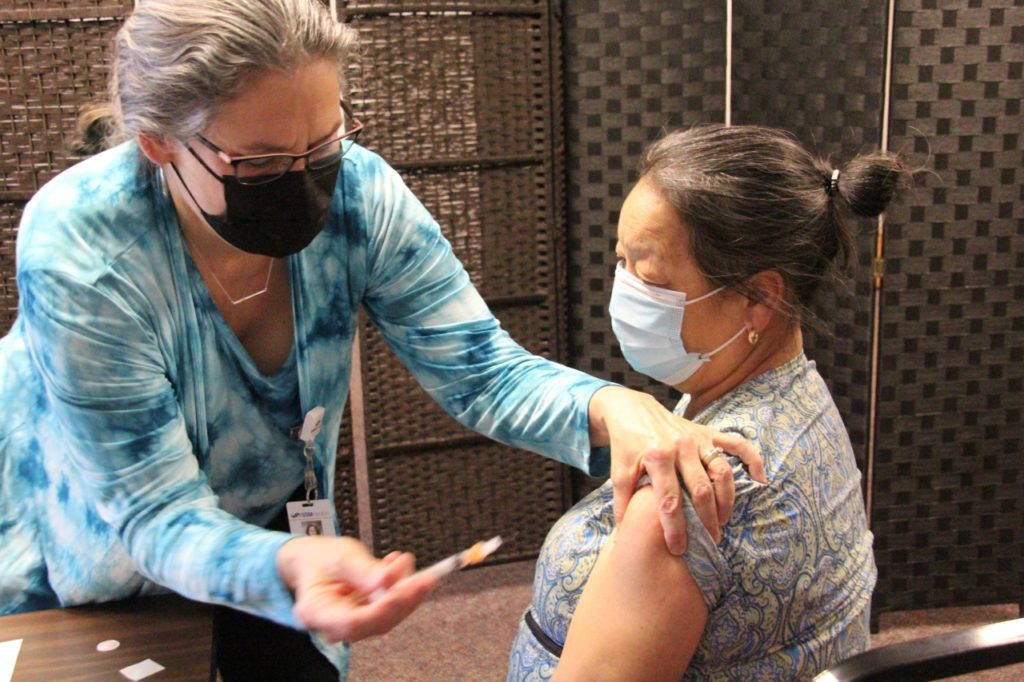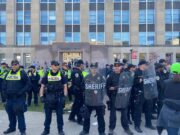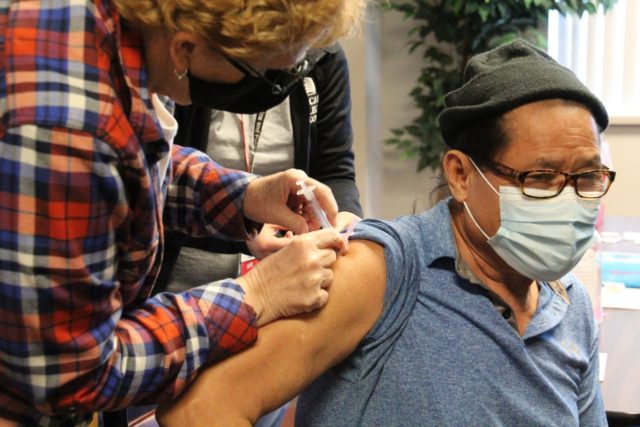The Hmong Institute partnered with Benevolent Specialists Project (BSP) free clinic to provide free COVID-19 vaccinations to 48 Hmong and Southeast Asian elders on March 9 at the Life Center on Madison’s east side.
“It was really inspiring to see so many of the elders come to this event who had previously shared with me that they were very nervous about getting the vaccine,” Peng Her, CEO of the Hmong Institute, tells Madison365. “Many were also disappointed that they hadn’t been able to schedule a shot because they see on TV reports every day about ‘so many people got vaccinated today’ and they feel left out.
“They kept asking, ‘when is it going to be our turn?’ So they felt that today was finally their turn to get vaccinated and that made me really happy to see that,” he adds.
Due to cultural and language barriers, many of the Hmong elders were uncertain and some shared with Her how nervous they were about getting the shot.
“They were worried about the needles but they did confess in the end that it didn’t hurt. So they were really relieved afterward,” Her says. “We hope that because of today’s event that they will go and share with the community at large that the vaccine is safe and it doesn’t hurt and that you should go get yours because it will make you safer.”
The elders’ inability to get vaccine shots due to culture and language barriers and the underlying health conditions that many of them had put them at greater health risk when it comes to COVID-19. Many are not Internet and social media savvy, Her says.

“So it’s really important to have events like this. I’m sure health centers are well-intentioned in their strategies to get people signed up but sometimes some of the unintended consequences are the folks who have language and cultural barriers,” Her says. “When a health center says, ‘We’re going to use MyChart to schedule our appointments,’ there are people in our community who don’t use MyChart or don’t have an email or don’t know how to use the Internet who are going to be left out.
“If there is a phone number to call and the person on the other end doesn’t speak Hmong or whatever language you may speak, it can be very frustrating and challenging,” he adds. “By us having this vaccine clinic today, it provided a space that the elders were familiar with and felt comfortable in. Being a trusted community partner, they could come and get the vaccine with people they know and staff that is bilingual whether it be Hmong, Lao, Tibetan, Cambodian, etc.”
The Hmong Nurses Association, another partner for the event, did a great job making the elders feel comfortable, Her said.
“One of the Hmong nurses actually helped administer the shots so that helped reduce and alleviate a lot of potential stress,” Her says. “If you’re an elder and you’re already nervous and doubtful and you get there and there’s a Hmong nurse ready to give you the shot, I think that helps reduce that stress and they can ask the nurse any questions they might have directly.
“Those are things that are really important,” he adds.
In addition to the vaccine clinic, The Hmong Institute has created a COVID-19 Hotline and is working with Madison Dane County Public Health to get accurate information about the vaccine to the Hmong and Southeast community.
Her says that the Hmong Institute is looking to be able to partner with other community health centers in the future for COVID-19 vaccinations.
“The challenge for us is we rely on partnerships with health centers. What we’d really like to do is have a day where we can vaccinate hundreds of people in one day through partnerships with health centers and the Hmong Nurses Association,” Her says. “Having more folks being able to administer the vaccine can allow us to vaccinate even more people than the 50 we did today.”




























